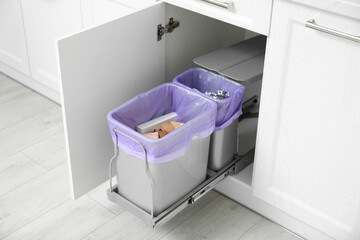A company that generates any kind of waste, whether it be offensive, sanitary waste, incontinence, or otherwise, has a responsibility to verify that the waste it generates, stores, transports, and disposes of does so in an environmentally responsible manner.
Are duty of care and waste transfer notes the same?
This misunderstanding is reasonable, given that many authorized waste transporters include duty of care documentation in their standard fee structures for Waste Transfer Notes.
-
Duty of Care
Duty of Care outlines your duties as a waste producer under the code of practice. The code is explicit about your duties as a waste producer for the storage, retention, and disposal of waste.
-
Waste Transfer Note
The Waste Transfer Note is a legal necessity and serves as proof that, as a waste producer, you are meeting your legal duties.
What is a waste transfer note?
It is your responsibility as a generator of any kind of waste, whether it be hazardous, medical, incontinence, or otherwise, to verify that the waste you generate, store, transport, and dispose of is done so in a way that complies with all applicable laws and regulations and does not cause any harm to the environment. It’s sometimes called “your responsibility of care,” which sounds much more serious.
A waste transfer note (WTN) is a document that records the transfer of waste from your premises to the waste carrier, who will then transport your waste to a licensed facility to be cremated. This document should be provided to you by the licensed service provider who removes your waste. Every load of waste you hand over to someone else must have a Waste Transfer Note attached to it.
WTNs provide a traceable paper trail from waste generation to disposal. You risk a hefty charge if you don’t maintain copies of all your WTNs for at least two years and can’t present them when requested by your local council or environmental authority. Before handing off your sanitary waste collection, make sure the recipient has the proper registration, permission, or exemption to handle the waste in question.
To learn more, check out the.gov website on waste management.
To what extent do I need a waste transfer note for sanitary waste?
Sanitary waste is generally collected more often than other office waste because of its potentially hazardous nature, even though there is no legal need to have it collected differently.
Employers have a responsibility to prevent the accumulation of waste in restrooms, following the Workplace (Health, Safety, and Welfare) Regulations 1992. Trikon Clinical Waste, like many other waste experts, provides a variety of janitorial services, including customizable collection schedules, soap and hand dryer services, sanitizers, and air fresheners.
The Department of Health classifies soiled toilet paper and other sanitary materials as “offensive waste” in its official guideline, Safe Management of Healthcare Waste. Waste that has been generated by healthy individuals is not considered contagious since it poses no risk of spreading illness. You may throw away noxious materials in the same landfills as your regular waste.
Under Section 34 of the Environmental Protection Act of 1990, employers have a responsibility to monitor the proper disposal of any and all waste generated on the premises. Businesses also have a responsibility to make sure it doesn’t hurt people or the planet.
Just how often must I get a Waste Transfer Note?
Each time TCW collects waste from your business, we provide you with a Waste Transfer Note that also serves as a proof of service and consignment. This is done so that if there are any changes since your previous service, your WRN will reflect those changes.
As soon as you authorize service, our automated system will send you an email with an attachment of your signed WTN that includes the details of the visit, including the name of the service driver, the time and date of the visit, the vehicle registration number, and the service performed. Season tickets are used by several legally operating transportation companies. With this WTN, you may make as many transfers as you want within a 12-month time frame. Season tickets may be used if the following conditions are met:
- The waste generator and the waste transporter remain constant.
- If there is a change in the kind or quantity of waste being moved, a new Waste Transfer Notice (WTN) must be issued.
- The location where waste is moved from one individual to another remains the same.
- A new WTN will be required if any of the aforementioned factors change.
What should be included in a waste transfer note?
Be it sanitary bins for small businesses or large businesses, both the waste provider and the waste receiver need to fill out and sign a WTN. To be securely and legally collected or disposed of, the waste must be described in sufficient detail. You can face legal action if your waste is improperly handled because you failed to provide sufficient information.
- A few essentials for the WTN are:
- explanation of the waste
- Every step has been taken to date to dispose of the waste.
- Waste’s packaging and containment methods
- how much waste there is
- precise details on the location, time, and date of the handoff.
- information on who each party is and where they may be reached.
- information on the recipient’s waste permits, licenses, or exemptions
- The European Waste Catalogue (EWC) code corresponding to your waste
- your company’s SIC code, or Standard Industry Classification
Caution: never depend on waste transporters or brokers in waste management to accurately characterize your waste. If you’re the one making waste, it’s on you to provide an accurate description of what you’re throwing away.
Wrapping Up
Have you given any thought to the kind of sanitary waste bin that your organization requires? Then you should get in contact with Trikon Clinical Waste so that we can provide you with direction, support, and guidance to guarantee that you have the right services for the collection and disposal of your sanitary waste in the UK.

Shalesh Tiwari ! MD in sk digital media pvt ltd and guest blogger


